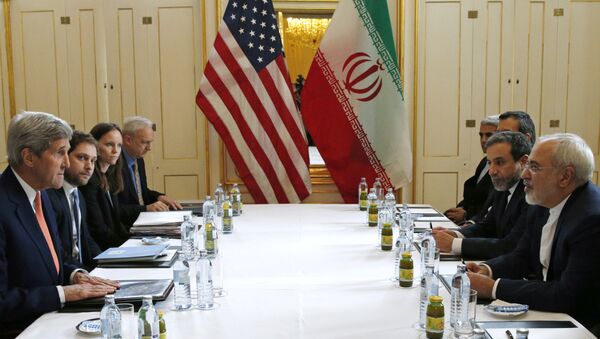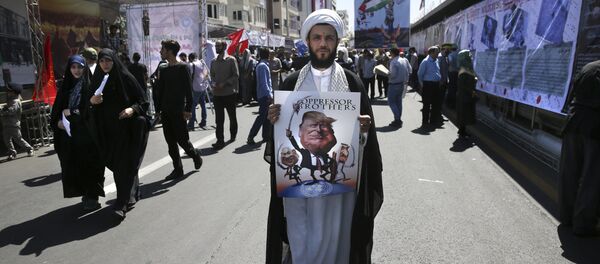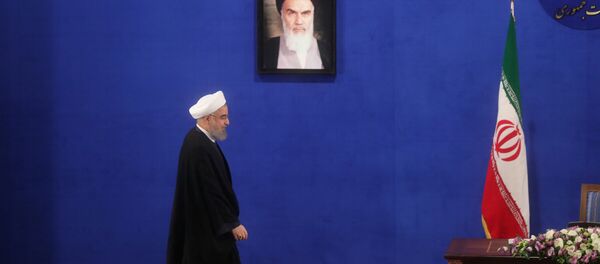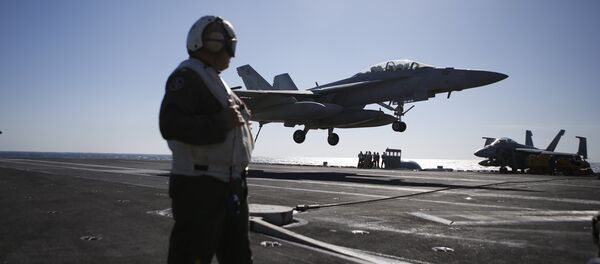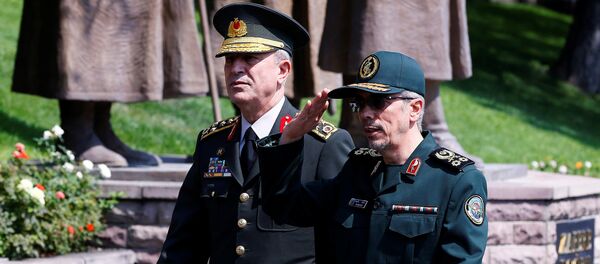MOSCOW (Sputnik) — Iranian President Hassan Rouhani said on Tuesday that Iran could "reach a status much better than the status at the time before the negotiations" if the United States expanded sanctions against Tehran.
In 2015, Iran, five permanent members of the UN Security Council and Germany, agreed on the JCPOA, known as the Iran nuclear deal, which lifted nuclear-related sanctions imposed on Iran in exchange for the assurance that Tehran would not expand its nuclear program beyond peaceful purposes.
UNLIKELY DEVELOPMENT
According to Dr. Christopher Davidson, an associate professor in Middle East Politics at Durham University’s School of Government and International Affairs, Tehran is not likely to actually withdraw from the deal and Rouhani's statement is probably a bluff.
"Iran, I think, is very unlikely to withdraw from the deal. Rouhani is making a calculated, and entirely reasonably bluff on the basis that numerous European, US, and other multinationals have now travelled significant distance in making significant inroads into new Iranian opportunities," Davidson told Sputnik.
Alex Vatanka, a senior fellow at the Middle East Institute, also called Iranian withdrawal unlikely and suggested that the strongly worded statement was meant for the Iranian people rather than the international community.
"I think this is mostly for domestic consumption in Iran. I don’t think the Iranian President has any intentions of walking away from this nuclear deal. What he would love to see is the United States to unilaterally walk from the deal," Vatanka said.
The expert said that Iran would have a lot to lose if it were risking the return of international sanctions, while in case that was taken out of the equation, Tehran's potential withdrawal would be less of a risk.
"But I still don’t think this Iranian regime right now is going to dash for a nuclear bomb even if they were under sanctions I don’t think they will do that," Vatanka said.
Director of Middle East Nonproliferation Program in James Martin Center for Nonproliferation Studies Dr. Chen Kane told Sputnik that the withdrawal was unlikely since Iran had "everything to lose and nothing to gain from withdrawing."
Dr. Robert Standish Norris, a senior fellow for nuclear policy of Federation of American Scientists suggested that Trump might be the first to withdraw.
"If there is withdrawal the Iranians will return to developing a bomb as quickly as possible," Norris said.
POLITICAL TENSIONS, BUSINESS OPPORTUNITIES
According to Vatanka, the United States did not seem to have a strategy on Iran and as long as that did not change, the nuclear deal would remain safe.
"I think the Iranians will certainly stick to it. And I think despite the threats expressed by President Trump the White House for now has so much else that it needs to do," the expert said.
Kane said it was important to pay attention to how Iranian compliance with the deal conditions was verified.
"For the future, it is important to observe whether the Trump administration will not re-certify that Iran is complying with the agreement without solid evidence or whether Iran is trying to hinder the inspection regime," Kane said.
Earlier in the day Russian senator Igor Morozov told Sputnik that Russia might convene a meeting with the United States, China, France, the United Kingdom and Germany to address concerns over the Iran's nuclear deal. The senator added that Russia would try to convince Iran to maintain the status quo.
Under the 2015 deal, Iran had to significantly reduce its uranium stockpile, convert its Fordow Fuel Enrichment Plant to make it suitable for other uses and cut down the number of centrifuges used for the enrichment at Fordow and Natanz facilities. Iran may only carry out research and development at Natanz.

